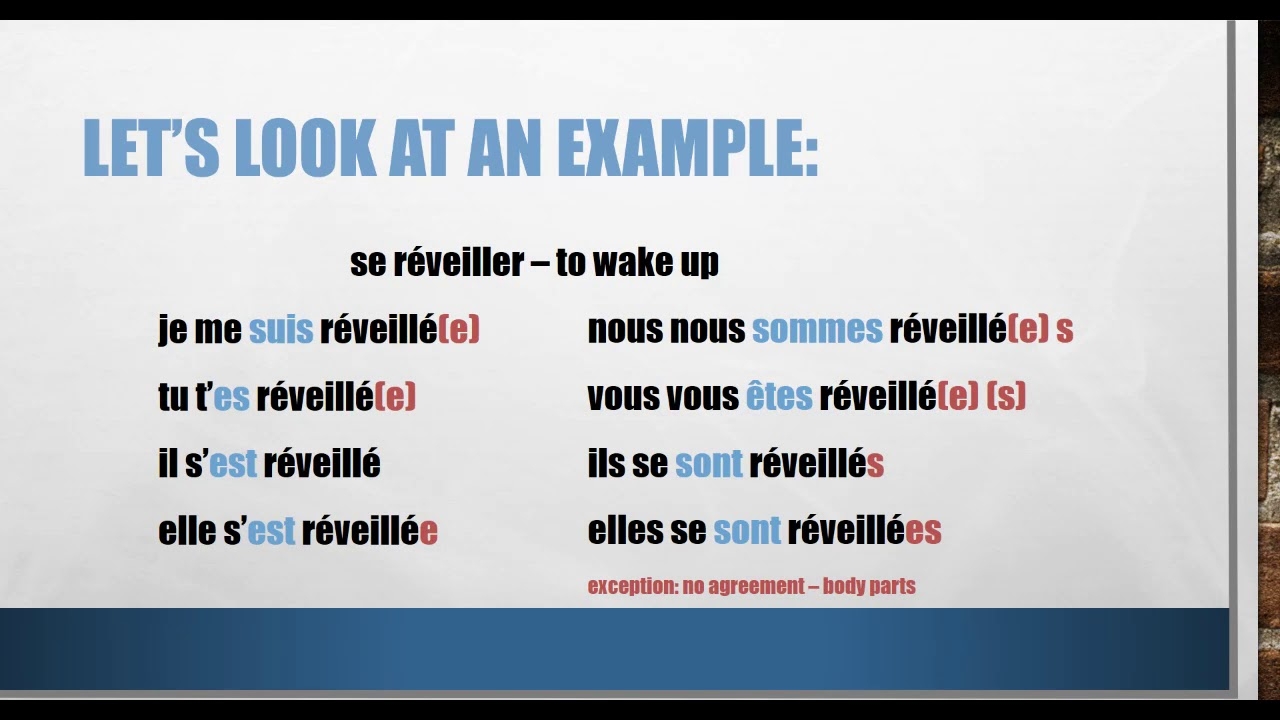Do you struggle with French grammar? One challenging aspect is the passé composé reflexive verbs. But fear not, with a little practice and guidance, you’ll soon master this tricky concept!
When using passé composé reflexive verbs in French, the reflexive pronoun (me, te, se, nous, vous, se) is placed before the auxiliary verb (avoir or être) and the past participle of the main verb. This structure indicates that the subject is performing the action on themselves.

passé composé reflexive verbs
Mastering the passé composé reflexive verbs
For example, if you want to say “I washed myself,” you would say “Je me suis lavé(e)” using the reflexive pronoun “me” before the auxiliary verb “suis” and the past participle “lavé.” This construction applies to all reflexive verbs in the passé composé tense.
It’s essential to pay attention to the agreement of the past participle with the subject in gender and number. For instance, if the subject is female, the past participle must agree in gender (e.g., lavée for a female subject).
Practice makes perfect, so don’t hesitate to write sentences using passé composé reflexive verbs and seek feedback from a teacher or tutor. With consistent practice, you’ll gain confidence in using these verbs correctly in conversations and written exercises.
In conclusion, while passé composé reflexive verbs may seem daunting at first, they are manageable with practice and dedication. Keep practicing, stay patient, and soon you’ll be using these verbs effortlessly in your French communication!

French Verbs Taking tre In The Pass Compos French Online Language Courses The Perfect French With Dylane

Pass Compos Master The French Past Tense Busuu

PPT The PASS COMPOS Of Reflexive Verbs Is Formed With tre PowerPoint Presentation ID 6261604

Master 41 Regular French Reflexive Verbs French Online Language Courses The Perfect French With Dylane

French Reflexive Verbs In Pass Compos YouTube
